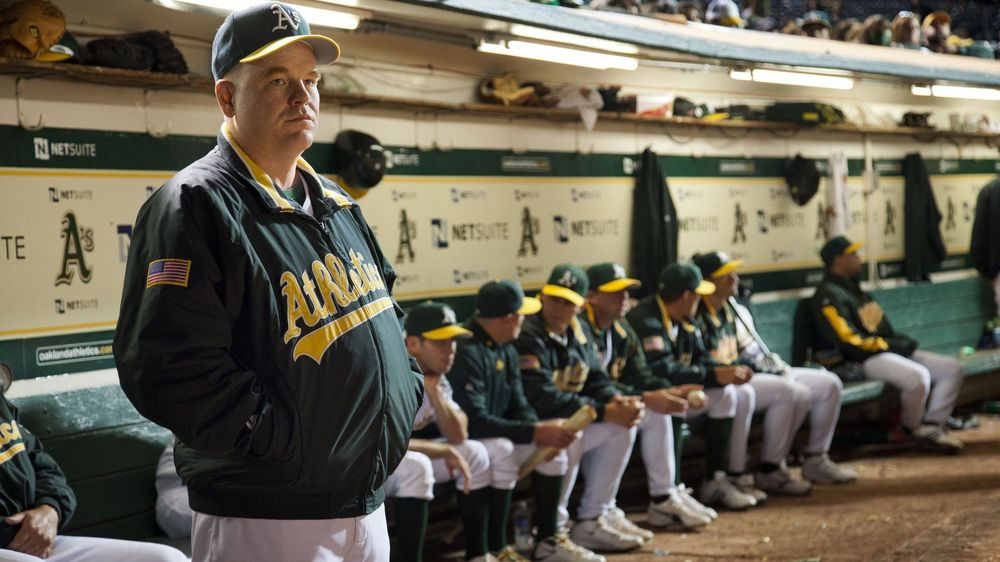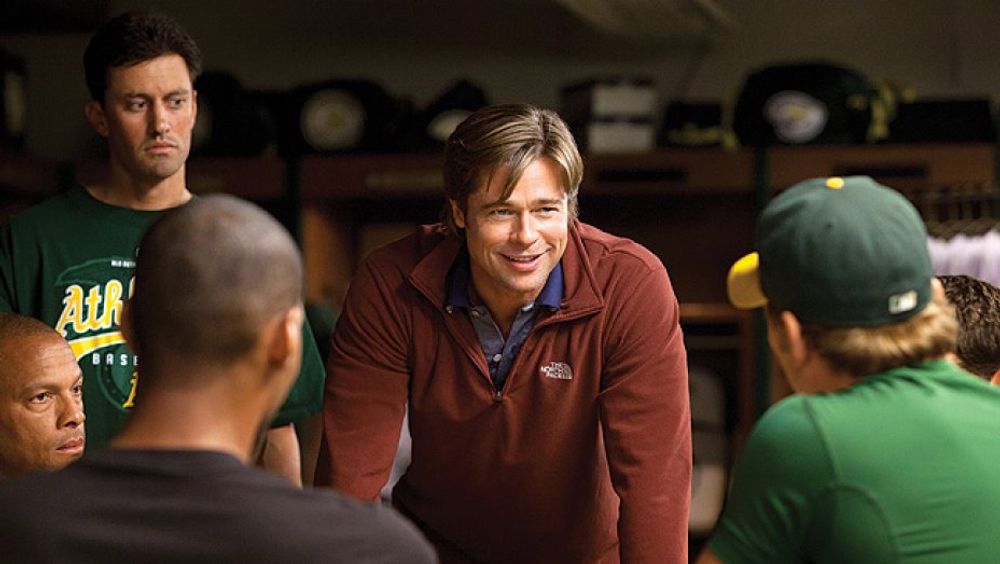Moneyball tells the story of one of baseball’s most outstanding achievements: The Oakland Athletics’ historic 20-game winning run that took them to the playoffs in 2002. Few expected the Athletics to make an impression during the 2002 season: The team was strapped for cash and had lost three star players – Jason Giambi, Johnny Damon, and Jason Isringhausen – to richer teams.
The team’s general manager, Billy Beane, and his assistant, Peter Brand, used an analysis system known as sabermetrics to recruit cheap yet effective players for the Athletics. Sabermetrics worked as it allowed the team to go toe to toe with the giants in the game.
Moneyball is a true story, but it has several inconsistencies with real life.
Moneyball’s depiction of the Athletics’ historic run is accurate

Moneyball accurately depicts the Athletics’ historic 2002 winning run. The team became the first team in the league’s 100-year history to put together 20 straight wins.
The Athletics’ achievement was so unexpected that it surprised even people associated with the franchise. Before the run, the team had lost its star players and endured a series of bad results and performances.
To make matters worse, Billy Beane had no cash to attract star players who could improve the team’s talent and raise morale. Therefore, Billy and his assistant turned to Sabermetrics to find cheap or free players who fit into the Athletics’ system.
Low-profile free signings by Billy Beane transformed the Athletics into a juggernaut. Moneyball depicts the team’s schedule and games accurately as it details the Athletics’ unexpected dominance during that period.
The film inaccurately portrays some real-life characters

Jonah Hill impressively plays Billy Beane’s assistant, Peter Brand. However, Beane’s real-life assistant wasn’t Peter Brand: his real name was Paul DePodesta.
DePodesta refused to have his name associated with the film, but the writers based Jonah’s character on the celebrated coach. The movie depicts Brand as a socially awkward geek from Yale who knows more about statistics than sports, a representation that does little justice to Paul.
Paul is a confident Harvard graduate who played football and baseball in college. He shares the same brain smarts as Brand but has no issues carving out a role for himself in the franchise.
Brand joined the Athletics in 2002, but in real life, Paul joined in 1999. The film portrayed Brand and Billy as enemies of the old scouting system, leading to many disagreements with scouts. Paul states, however, that his and Billy’s statistics-based approach wasn’t meant to replace scouts.
“There are human elements that go into the development of players,” Paul told The Washington Post. “It’s probably a little dangerous if we disregard that. On the other hand, there’s no question in my mind that the data is important. Virtually everybody in the industry at this point would agree.”
Scout Grady Fuson openly opposed Billy’s methods, leading to his firing in the mid-season. However, Billy didn’t fire Grady in real life: Fuson left the Athletics for a better job with the Texas Rangers. Paul insists that Sabermetrics didn’t oppose scouting; it made scouting more effective:
“Scouts really help you deal with that uncertainly. On the other hand, we looked at it and said, ‘How can we further decrease that uncertainty?’ And being able to use data was one of the ways we could do that. It wasn’t to replace anything else.”
In Moneyball, Billy rarely gets along with scouts or the team’s manager, Art Howe. Art opposes Beane’s tactics and openly defies him. When the Athletics start winning using Billy’s strategy, Howe becomes the show’s villain. Howe told Mad Dog Sports Radio that he didn’t enjoy his portrayal in Moneyball:
“I figured it would be something like this, but to be honest with you it is very disappointing to know that you spent seven years in an organization and gave your heart and soul to it and this is the way evidently your boss [Beane] feels about you. If you ask any player that ever played for me they would say that they never saw this side of me, ever.”
Evidently, the film misrepresented some characters to add drama to the narrative. It upset Art Howe and Paul DePodesta, but showrunners have the creative freedom to misrepresent fact for art’s benefit.
Moneyball left out some star players in the Athletics’ squad
Contrary to what we see in the film, the 2002 Oakland Athletics team had stars in its roster.
The team had three standout pitchers: Tim Hudson, Mark Mulder, and Barry Zito. The three made the All-Star team nine times in their careers. In 2002, Barry won the American League Cy Young Award, an honor bestowed on the league’s best pitcher.
Without the team’s star pitchers, the Athletics wouldn’t have put together their stunning run. However, Tim, Mark, and Barry are hardly mentioned or depicted in the film.